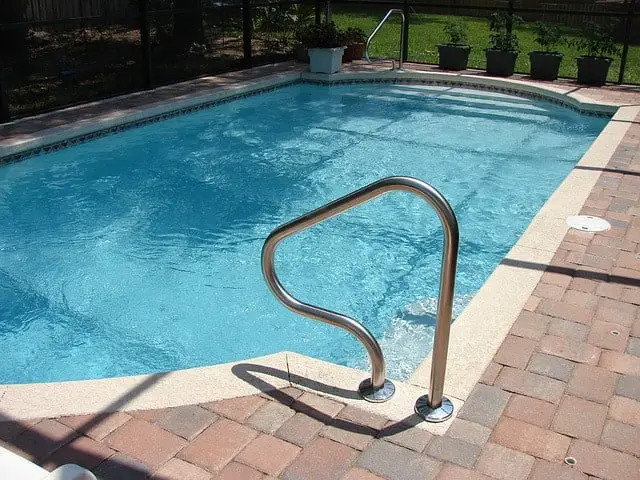Saltwater pools mostly offer positive benefits to owners that regularly chlorinated pools don’t. But given the extra equipment involved in a saltwater pool, there are several things to be aware of.
Here are some topics that saltwater pool owners face that other pool owners with chemical chlorine don’t face:
- Saltwater corrosion: Saltwater can cause corrosion of pool equipment such as heaters, pumps, and filters, which may require replacement or repairs more frequently than in traditional chlorine pools.
- pH levels: Saltwater pools require careful monitoring of pH levels, which can be affected by salt levels and the use of saltwater chlorinators. Incorrect pH levels can cause scaling, staining, or damage to the pool surfaces. pH tends to rise more with saltwater pools than other types. You can consider a pH control system if it’s a constant problem for you.
- Salt levels: Only a saltwater pool uses salt to produce chlorine. Maintaining proper salt levels in the pool water is crucial to ensure the effectiveness of the saltwater chlorinator. High salt levels can lead to corrosion, while low levels can result in insufficient chlorine production. Low salt levels can make it difficult for the chlorinator to produce enough chlorine for the water.
- Chlorine generator maintenance: Saltwater pool owners need to maintain their saltwater chlorinators by regularly cleaning the cells and inspecting them for damage. Failure to do so can result in low chlorine production and poor water quality. Many chlorinators have built in self-cleaning reverse polarity functionality that automatically cleans the cell from time to time to prevent you manually cleaning and potentially damaging the cell.
- Initial installation cost: While saltwater pools may require less ongoing maintenance and chemical purchases than traditional chlorine pools, the initial installation cost can be higher due to the cost of the saltwater chlorinator and other equipment.
- Water chemistry: Saltwater pools require a different water chemistry balance than traditional chlorine pools, which can be more challenging to maintain. Factors such as calcium hardness, alkalinity, and stabilizer levels must be carefully monitored.
- Saltwater pool benefits: Despite the above challenges, saltwater pools offer several benefits, including softer water, less skin and eye irritation, and a more natural swimming experience. A good chlorinator will also tend to keep the water chemistry more balanced with less maintenance and fewer chemicals added. You may still need to add chemicals from time to time for things like algae but you will tend to use less than with a chemically chlorinated pool.

